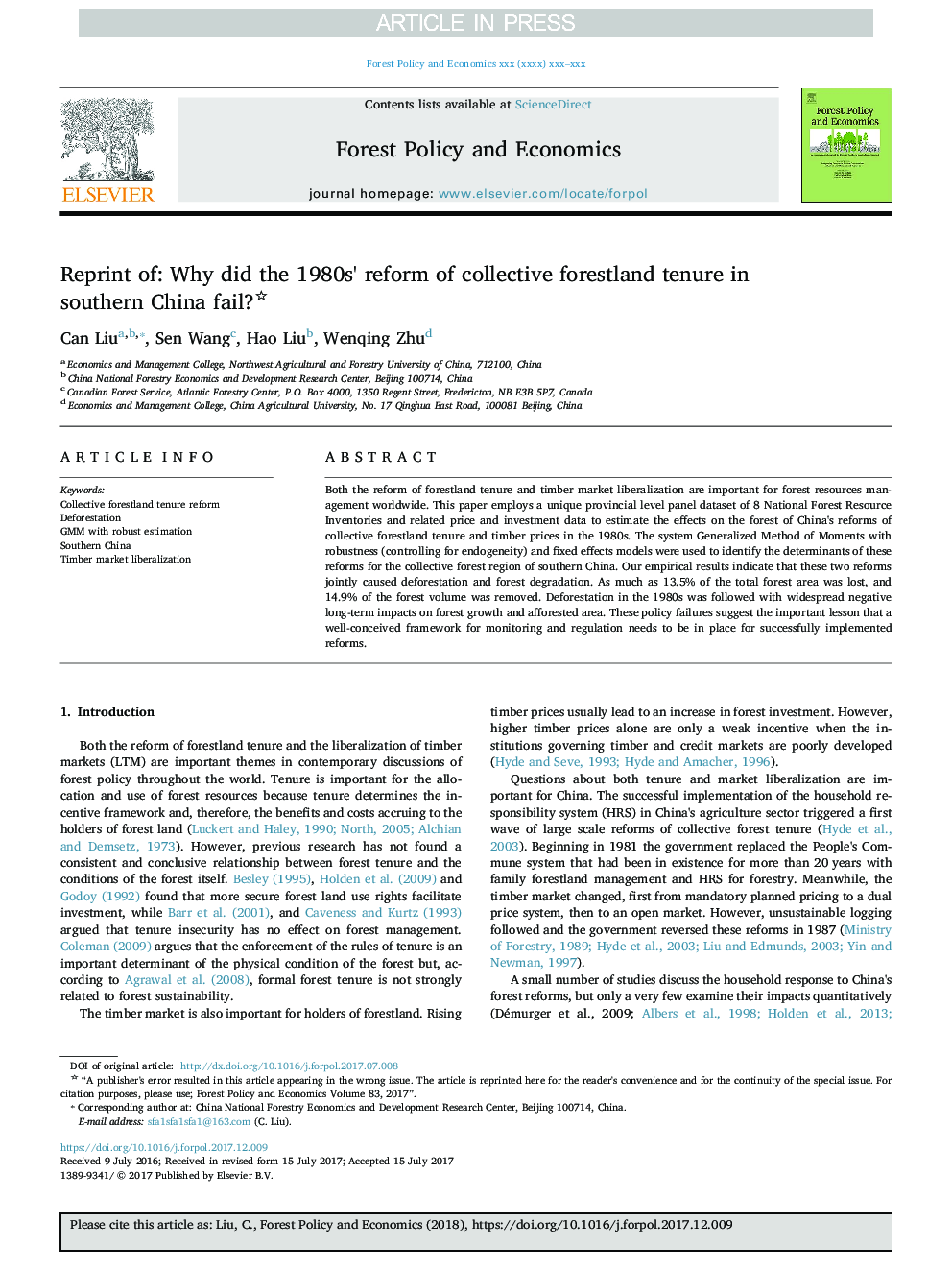| Article ID | Journal | Published Year | Pages | File Type |
|---|---|---|---|---|
| 11012820 | Forest Policy and Economics | 2019 | 11 Pages |
Abstract
Both the reform of forestland tenure and timber market liberalization are important for forest resources management worldwide. This paper employs a unique provincial level panel dataset of 8 National Forest Resource Inventories and related price and investment data to estimate the effects on the forest of China's reforms of collective forestland tenure and timber prices in the 1980s. The system Generalized Method of Moments with robustness (controlling for endogeneity) and fixed effects models were used to identify the determinants of these reforms for the collective forest region of southern China. Our empirical results indicate that these two reforms jointly caused deforestation and forest degradation. As much as 13.5% of the total forest area was lost, and 14.9% of the forest volume was removed. Deforestation in the 1980s was followed with widespread negative long-term impacts on forest growth and afforested area. These policy failures suggest the important lesson that a well-conceived framework for monitoring and regulation needs to be in place for successfully implemented reforms.
Keywords
Related Topics
Life Sciences
Agricultural and Biological Sciences
Forestry
Authors
Can Liu, Sen Wang, Hao Liu, Wenqing Zhu,
